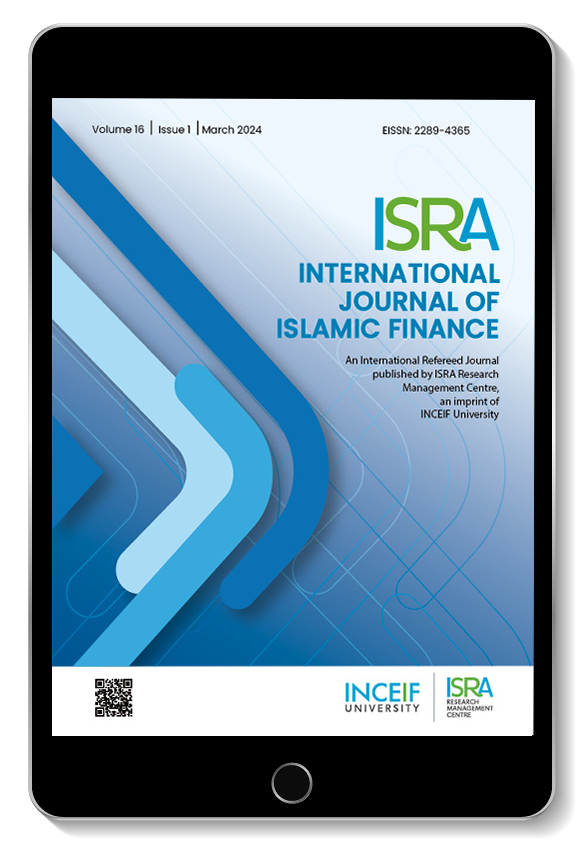古典宗教基金、法律类比与awqāf学说框架
IF 1.4
Q2 BUSINESS, FINANCE
引用次数: 3
摘要
本文的目的是分析伊斯兰教捐赠(waqf)的沙迦前提,然后阐述古典法学家对其规则和原则的争论的性质。本文批判性地分析了不同早期法学家的应用法学类比在推导各种waqf学说时所起的作用。分析waqf的经典法理框架的目的是概念化推导waqf原则的法律类比的方法、机制和性质。这一分析对于理解现代awqāf法律灵活性的范围至关重要。设计/方法/方法这篇论文是基于图书馆研究的结果。它使用了waqf的经典法学论文,目的是分析该制度的沙迦基础,其关键原则的前提和应用法学类比来推导相同的。本文选取了逊尼派四大法理学流派的经典waqf书籍和论文,并采用了文本分析法。FindingsThe论文发现,在它的初始阶段,概念框架的圣地不是所有法学家,一致同意的,而它的莎尔īʿ啊允许仍然非常有争议的其中一段时间。虽然在后期阶段,赞同伊斯兰教法有效性的法学家的意见将占上风,但关于伊斯兰教法的必要特征和界定标准的意见仍然存在分歧。在经典的waqf文献中,waqf法理中最具争议的两个方面构成了waqf完成的要求及其所有权地位。本研究既没有涵盖伊斯兰教在穆斯林社会中的历史贡献,也没有触及现代伊斯兰教的实证方面。相反,研究的重点仅限于分析waqf的经典法学话语及其裁决的提炼过程。实际意义分析waqf的经典法学话语的目的是强调在确定fiqh al-awqāf (waqf的法学)的经典排列框架时,经典法学类比的前提,并学习如何采用类似的方法来演绎新的waqf裁决。原创性/价值本文在考察法律类比的方法和机制的同时,为分析经典判例的提炼过程增添了原创性价值。本文章由计算机程序翻译,如有差异,请以英文原文为准。
Classical waqf, juristic analogy and framework of awqāf doctrines
Purpose
This paper aims to analyse the Sharīʿah premises of waqf (Islamic endowment), followed by dilating on the nature of argumentation among the classical jurists on its rules and principles. The paper critically analyses the edifice of the applied juristic analogy of different early jurists in deriving various waqf doctrines. The objective of analysing the jurisprudential framework of waqf in its classical mould is to conceptualise the methods, mechanism and nature of juristic analogies in deriving the waqf principles. This analysis is critical to understand the scope of jurisprudential flexibility in modern awqāf.
Design/methodology/approach
The paper is an outcome of a library-based research. It uses the classical jurisprudential treatises of waqf with an aim to analyse the Sharīʿah basis of the institution, the premises of its key principles and the applied juristic analogy to derive the same. The paper covers the classical waqf books and treatises from the four Sunni schools of jurisprudence and uses a textual analysis method.
Findings
The paper finds that in its initial phase, the conceptual framework of waqf was not unanimously agreed by all jurists, rather its Sharīʿah permissibility remained critically disputed among them for a while. Though, the opinion of those jurists who approved the Sharīʿah-validity of waqf was to prevail in the later stage, disagreement persisted with reference to its necessary features and defining criteria. It is found that in the classical waqf literature, two most disputed aspects of waqf jurisprudence constituted the requirements for completion of a waqf and its ownership status.
Research limitations/implications
This study neither covers the historical contribution of waqf among the Muslim societies nor touches on the empirical aspects of modern waqf. Rather, the focus of the study is limited to analysing the classical jurisprudential discourse of waqf and distillation process of its rulings.
Practical implications
The objective of analysing the classical juristic discourse of waqf is to underline the premises of classical juristic analogy in determining the framework of fiqh al-awqāf (jurisprudence of waqf) in its classical permutations and to learn how to adopt a similar approach for deduction of new waqf rulings.
Originality/value
This paper adds original value to the body of waqf literature for analysing the classical waqf rulings distillation process along with examining the methods and mechanism of juristic analogy.
求助全文
通过发布文献求助,成功后即可免费获取论文全文。
去求助
来源期刊

ISRA International Journal of Islamic Finance
BUSINESS, FINANCE-
CiteScore
3.40
自引率
17.40%
发文量
18
审稿时长
20 weeks
期刊介绍:
It is the aspiration of the editorial committee that IJIF achieves the highest rank in quality and substance. It is thus our aim that the journal be carried in the Thompson Reuters’ ISI and Scopus databases. By ensuring high standards in articles published in Islamic finance we ensure that further innovation and research is carried out and promoted in the Islamic finance industry and academia. IJIF publishes 2 issues per annum.
 求助内容:
求助内容: 应助结果提醒方式:
应助结果提醒方式:


